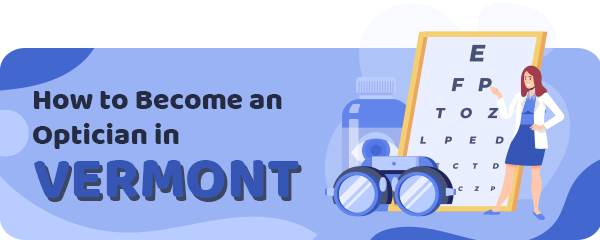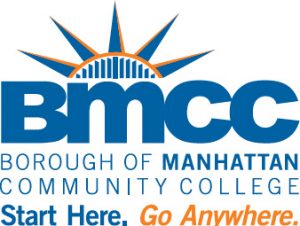
Becoming an optician in Vermont can be a rewarding career.
If you want to take this professional path, you should first have an idea of the laws in this state.
For that, all you have to do is check out the following article.
Article Table of Contents
Optician Job Duties
Understanding the role and responsibilities of an optician in Vermont is a crucial aspect when considering this profession.
Key duties include:
- Preparing eyewear
- Fitting and adjusting eyewear
- Educating customers about eyewear issues and maintenance
- Keeping sales records
- Determining insurance co-pays
- Keeping the inventory
- Interacting with the labs that make lenses
Depending on your job title and the specific workplace, additional tasks and duties may be assigned.
It’s important to note that these responsibilities are designed to assist customers in selecting the right eyewear based on their individual needs and preferences.
Importantly, as an optician in Vermont, you won’t be involved in eye examinations or prescribing eyewear.
Your primary focus is on facilitating an informed and satisfying eyewear selection experience for customers.
Optician Training in Vermont
In Vermont, aspiring opticians face a unique challenge – the absence of local schools offering formal training programs for this profession.
Otero College 
While situated in Colorado, this college provides a fully online optician training program.
Enrollment is open at any time, and no specific requirements are necessary.
However, having a high school diploma or its equivalent is recommended as the minimum requirement for the ABO exam.
Completion of the program results in obtaining a certificate.
For those seeking a degree, there’s an option to enroll in the Bridge to Bachelor’s degree, which can be selected during the initial enrollment or the first semester.
It is advisable to check with the college and the department to confirm the inclusion of the optometry program.
Borough of Manhattan Community College 
This community college provides a fully online course without fixed start dates.
Enrollment has no specific requirements.
Upon completion, students will be prepared for the ABO certification exam.
Topics covered in the course include:
- Simple math and algebra
- Soft contact lenses
- Gas-permeable contact lenses
- Legal responsibilities and ethics
- The parts of the eye
- Refractive errors
- Strabismus and amblyopia
- Other common ocular conditions
- Prism basics
| School Name | Address |
|---|---|
| Otero College | online |
| Borough of Manhattan Community College | online |
Should you seek enrollment in such a program, you’ll likely find that most institutions offering optician programs have a minimum duration requirement of at least 2 years.
However, it’s worth noting that many of these programs may be located outside the state.
Prospective students should be aware that admission to these programs typically requires:
- A high school diploma or GED
- Completing specific classes with a minimum grade of C
- 2 letters of recommendation
- OAT scores – not older than 5 years
- Minimum GPA of 2.75
Curriculum highlights for aspiring opticians include a range of subjects such as:
- Ophthalmic Imaging
- Public Health Optometry
- Glaucoma
- Physics
- Introduction to Optometry
- Ocular Anatomy
- Systems 1: Neuroscience
- Ocular Microbiology
An alternative pathway to formal education involves undertaking an apprenticeship.
Aspiring opticians opting for this route are required to register with the Vermont Office of Professional Regulation and commit to a comprehensive 3-year training program.
This apprenticeship approach provides a hands-on and experiential learning opportunity for those seeking an alternative to traditional formal education.
Certification or Licensure for an Optician in Vermont
The Vermont Office of Professional Regulation extends licenses to individuals who successfully navigate through the following steps:
- Attain a high school diploma or GED.
- Graduate from a comprehensive training program, be it formal education or completion of an apprenticeship.
- Successfully pass the National Optician Competency Examination (NOCE).
The NOCE, administered by ABO, is structured into three proficiency levels:
- Beginner
- Intermediate
- Advanced.
You need to be able to:
- Read prescriptions,
- Fit and dispensing spectacles
- Use standard ophthalmic equipment
There is an additional $200 fee for those specializing in spectacles.
Upon obtaining your license, its validity extends for 2 years.
Within this timeframe, opticians are required to complete 10 hours of continuing education to stay current in the field.
For those wanting to work with contact lenses, successful completion of the Contact Lens Registry Examination (CLRE) is imperative.
Similar to the NOCE, the CLRE features three levels of difficulty and requires a $200 fee.
Topics covered include:
- Pre-fitting for lenses,
- Diagnostic fitting,
- Dispensing of lenses,
- Patient education,
- Delivery
- Follow-up
Optician Certification Renewal
It’s crucial to note that both NOCE and CLRE diplomas must be renewed every 3 years.
This means you need to take some extra education classes.
You can also keep up to date with the industry changes by attending various workshops.
Optician Salary in Vermont
In Vermont, the average annual salary for opticians stands at $51,100.
However, several factors come into play, influencing this figure.
These include geographical location, professional experience, and specific job titles.
To learn more about the salaries in this state, read on.
Annual Salary Range:| Location | Avg. Annual Salary |
|---|---|
| Vernon | $54,300 |
| Windsor | $54,100 |
| Brattleboro | $53,900 |
| Whitingham | $53,800 |
| Bennington | $53,700 |
| Danby | $53,600 |
| Arlington | $53,600 |
| Essex | $52,400 |
| Williston | $52,400 |
| Adamant | $51,900 |
Regional Salary in Vermont
| Region | Employed | Avg. Annual Salary | Avg. Hourly Pay | Top 10% Annual Salary | Bottom 10% Annual Salary |
|---|---|---|---|---|---|
| Burlington-South Burlington, VT | 50 | $56,810 | $27.31 | $66,320 | $36,870 |
* Employment conditions in your area may vary.
Frequently Asked Questions
How can I stay updated on changes to the regulations regarding opticians in Vermont?
If you feel you need more help, look no further than the list of resources below:
- American Board of Opticianry Examination (ABO) and National Contact Lens Examination (NCLE)
- Commission on Opticianry Accreditation (COA)
- Vermont Office of Professional Regulation
- Vermont Optometric Association
- OptiCon
What are the skills needed by an optician in Vermont?
Opticians have the following abilities:
- Attention to details
- Good communication skills
- Adaptable to new situations
- Business skills
- Physical stamina
- Ability to perform repetitive tasks
Where can I find work as an optician in Vermont?
Opticians find opportunities across various settings, with the following locations being primary employers:
- Stores
- Offices
- Optometry practices
- Hospitals
- Clinics
Read the full guide: How to Become an Optician